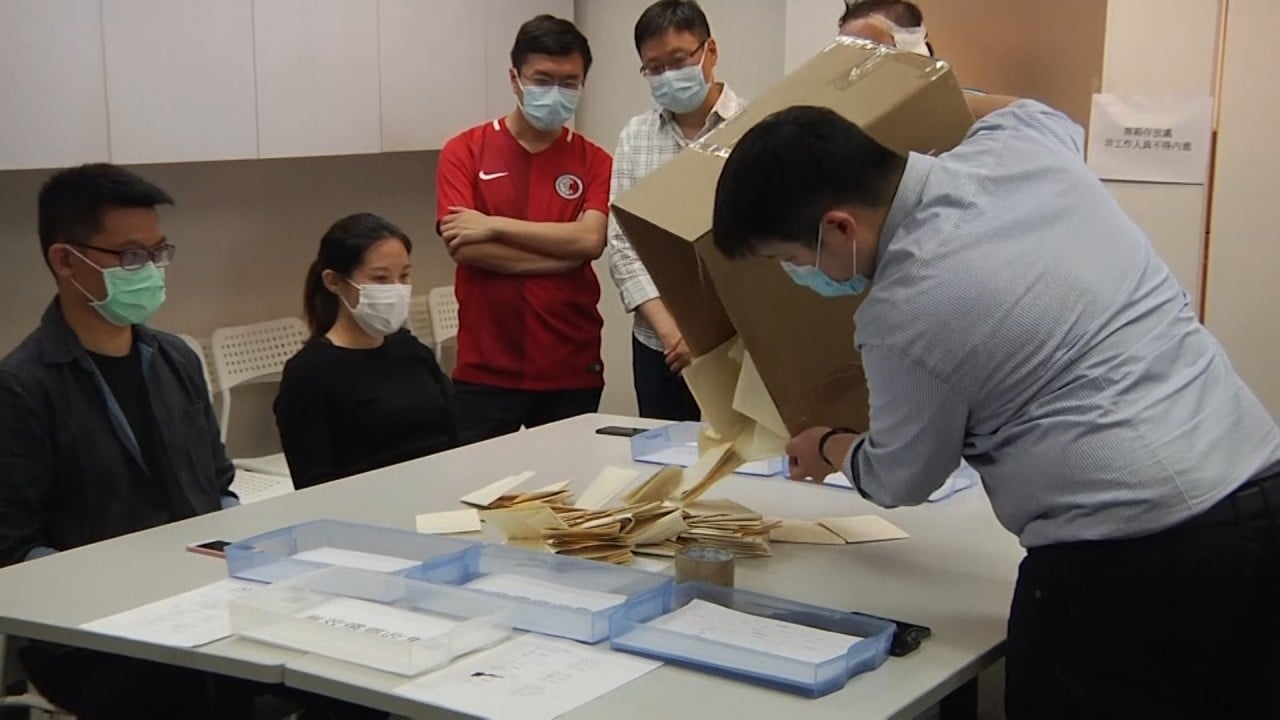
Hong Kong national security law: more opposition councillors face oath-taking ceremony on Friday
- Some 56 community politicians from five districts in Kowloon must pledge allegiance to city
- Previous ceremony for Hong Kong Island resulted in eight being unseated
More than 50 district councillors will have to pledge allegiance to Hong Kong on Friday.
Sources told the Post that the oath-taking ceremonies would cover a total of 56 members from five Kowloon district councils – Sham Shui Po, Yau Tsim Mong, Kowloon City, Kwun Tong and Wong Tai Sin.
Of the 452 district councillors elected in 2019, 392 were from the opposition camp. But some 260 of those have since quit, with many fearing they would have to pay back their accrued salaries if disqualified.

Earlier this month, 25 Hong Kong Island district councillors were asked to take their oaths one-by-one at the North Point Community Hall.
One opposition councillor, Peter Choi Chi-keung, was unseated after he refused to show up, and seven others were disqualified last Wednesday after Secretary for Home Affairs Caspar Tsui Ying-wai said he was not convinced they had been sincere.
A further seven from the opposition camp were among 17 councillors who had their oaths validated.
Sources previously said the seven were disqualified because of their involvement in an unofficial primary election in July 2020, which led to 47 opposition figures being charged with subversion.
Their disqualification leaves about 120 opposition members, accounting for about half of the 204 politicians serving the city’s 18 district councils.
Hong Kong district councils at a standstill as meetings, polls barred
Among the 56 district councillors expected to take their oaths on Friday, at least four – Lawrence Lau Wai Chung as well as Democratic Party members James To Kun-sun, Tony Kwok Tin-lap and Edith Leung Yik-ting – took part in the unofficial primary.
Lau was charged with subversion, To was arrested but not charged, while Kwok and Leung used their offices as polling stations in the primary.
Opposition activist Chu King-wai, a member of the Yau Tsim Mong District Council and the now-disbanded Community March political group, said he would attend Friday’s ceremony.
“I will just follow the rules and see if my oath will be validated,” he said. “I’ll do my job and won’t worry whether I could be disqualified.”

02:07
More than 610,000 vote in Hong Kong’s pro-democracy opposition primary elections
Award-winning Hong Kong director Kiwi Chow Kwun-wai was there to talk about his film, Beyond the Dream, after it was screened.
About 130 New Territories district councillors from across the political spectrum were expected to take their oath in October.
Separately, at a Legislative Council meeting on Monday, Secretary for the Civil Service Patrick Nip Tak-kuen was asked if employees of publicly funded bodies, such as the hospital or airport authorities, would be required to take an oath of allegiance.
But Nip would only say that Hong Kong’s No 2 official, Chief Secretary John Lee Ka-chiu, was looking into the matter. Nip also revealed that about 1 per cent of the city’s civil servants resigned in the 2020-2021 financial year.
“Compared with 2019-20, it was an increase of about 300 people. But there could be many reasons behind their resignation, and it’s hard to say if they left because of the oath-taking requirement,” he said.

